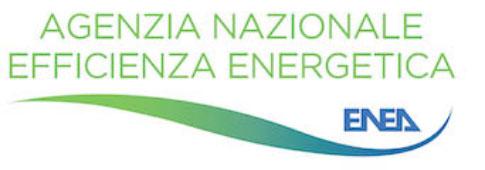[16.03.21] Blog-Italian Financial Schemes and Energy Efficiency
via Lorenza Daroda, ENEA

Italy has been shaken several times by devastating earthquakes and seismic activity in the recent decade. Retrofitting Italian homes to lower the destruction potential and combine it with energy upgrade for energy vulnerable families and people is one of the main goals of the new portal (https://detrazionifiscali.enea.it) that is now available via the homepage of ENEA – the Italian National Agency for New Technologies, Energy and Sustainable Economic Development. This service supports Italians battling energy vulnerability to compile and transfer the declarations and documents required to receive the new tax deduction instrument called SUPERBONUS 110%.
The Superbonus is a 110% tax credit of the expenditure established to improve a home’s energy efficiency and lower its seismic risk. The expenses have to be incurred between July 1, 2020 and December 31, 2021 and the renovation must show an improvement of at least two energy classes to obtain the tax bonus. The Portal serves as the platform to create and register all the mandatory declarations that have to be provided at beginning and at end of requalification works to receive the foreseen tax deductions. Through it, ENEA also provides all the technical guidelines and necessary information for the citizens on the procedures required to benefit from the Superbonus.
The main criteria to access the Superbonus are:
- Thermal insulation of more than 25% of the external surface area of a residential building;
- Replacement of heating/air conditioning equipment of residential buildings and boilers
- Seismic structural improvements that will increase safety/resistance of buildings to earthquakes.
The Superbonus has a number of characteristics that make it more accessible by energy vulnerable households:
- Tax credit derived from the Superbonus is given back once a year over a period of 5 years;
- Tenants can request it (if the owner has given his/her consent to the execution of the works);
- Taxpayers requesting the Superbonus have the possibility to ask for the discount on the invoice applied by the supplier (up to a maximum of 100%) or to transfer the tax credit to third parties including credit institutions and financial intermediaries;
- Superbonus can be requested also by those that do not pay any taxes due to low income if they resort to the discount on the invoice or the transfer of the tax credit.
According to ENEA, the Superbonus is a great opportunity to promote building requalification, foster better living conditions and energy use at home, allowing the reduction of energy bills, producing a positive impact, improving comfort, health, energy security and resilience of all home occupants. Furthermore, ENEA hopes that this incentive will contribute to achieve the 2030 energy saving objectives, and will accompany the country’s energy transition with robust demand in the construction sector, which also contributes to GDP growth.
